
GeriPal - A Geriatrics and Palliative Medicine Podcast
A geriatrics and palliative medicine podcast for every health care professional.
Two UCSF doctors, Eric Widera and Alex Smith, invite the brightest minds in geriatrics, hospice, and palliative care to talk about the topics that you care most about, ranging from recently published research in the field to controversies that keep us up at night. You'll laugh, learn, and maybe sing along.
CME and MOC credit available (AMA PRA Category 1 credits) at www.geripal.org
- Update frequency
- every 7 days
- Average duration
- 42 minutes
- Episodes
- 373
- Years Active
- 2016 - 2025

Jumpstarting Goals of Care Convos: Erin Kross, Bob Lee, and Ruth Engelberg
Today’s podcast is a follow up to our 2018 podcast with Randy Curtis about the Jumpstart intervention. On that podcast he and collaborators tested a combined patient and clinician facing communicati…

How State and Local Agencies on Aging Help Older Adults: A Podcast with Susan DeMarois, Greg Olsen, and Lindsey Yourman
You may have heard of Area Agencies on Aging, but do you really know what they do or how they do it? What about State Departments of Aging or state master plans for aging? Do you know how these age…
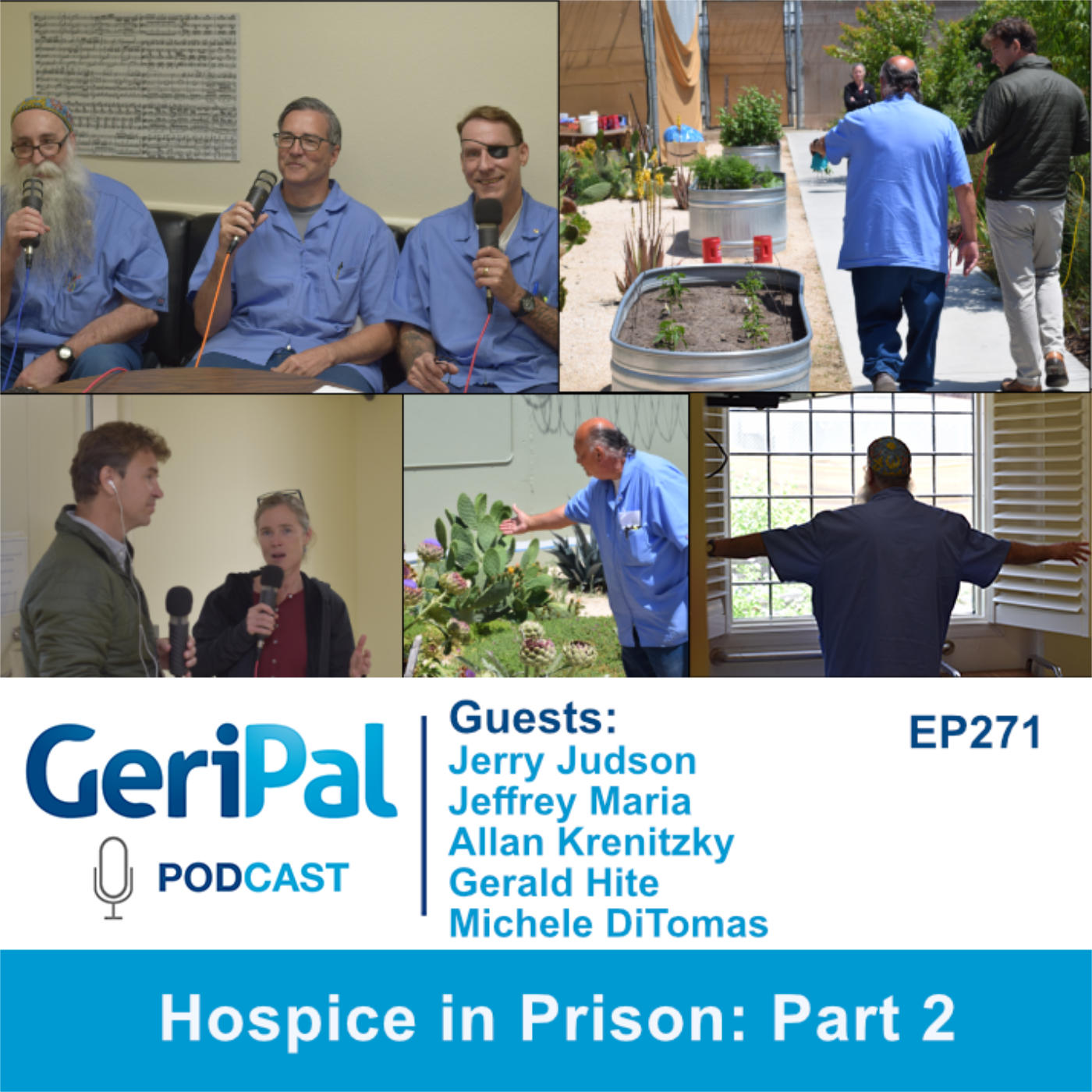
Hospice in Prison Part 2: An interview with the Pastoral Care Workers
I don't know 'bout religion I only know what I see And in the end when I hold their hand It's both of us set free
These are the ending lyrics to Bonnie Raitt’s song “Down the Hall”, an ode to the P…
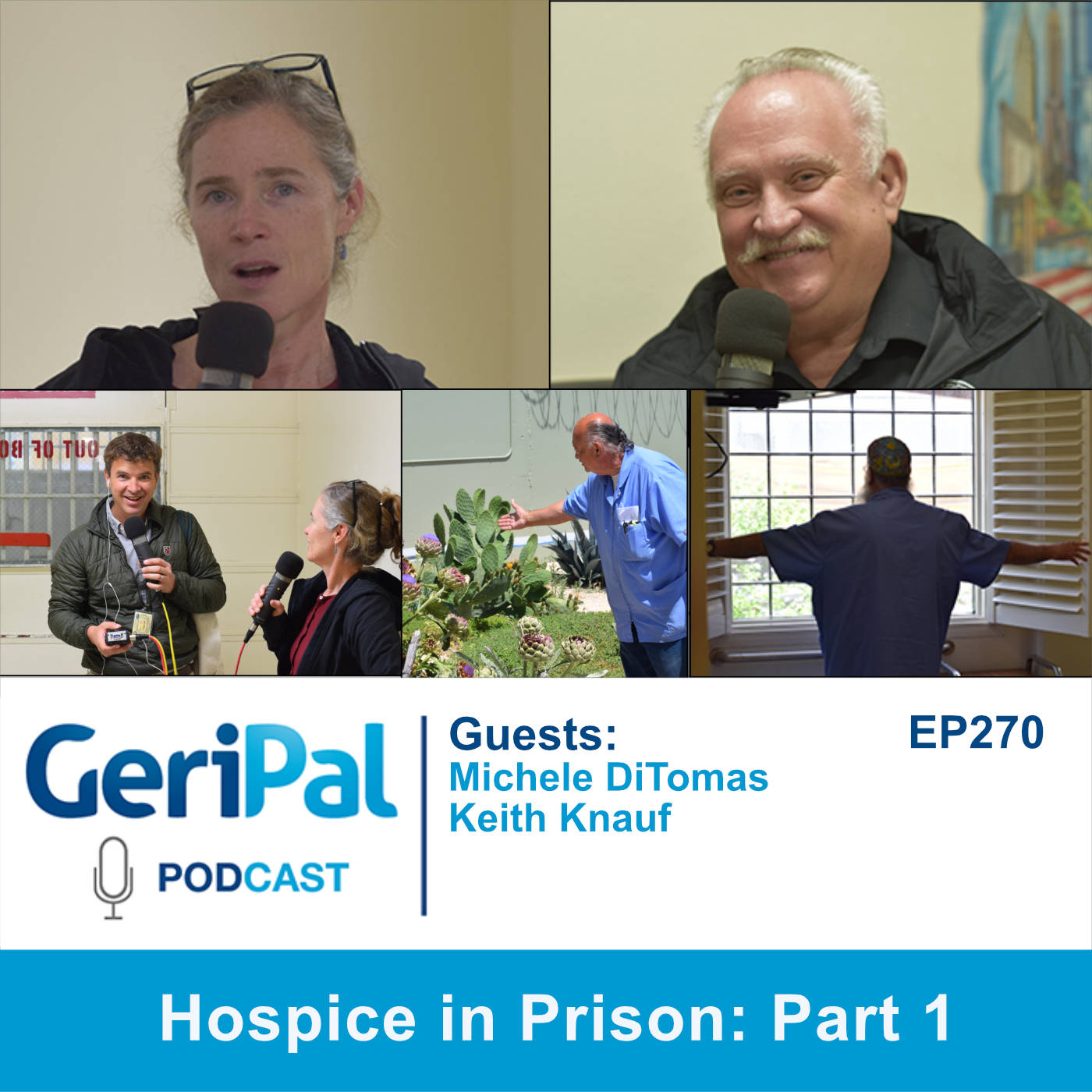
Hospice in Prison Part 1: An interview with Michele DiTomas and Keith Knauf
In the early 1990’s, California Medical Facility (CMF) created one of the nation’s first licensed hospice units inside a prison. This 17-bed unit serves inmates from all over the state who are ap…

Artificial Intelligence: Charlotta Lindvall, Matt DeCamp, Sei Lee
Artificial Intelligence, or AI, has tremendous potential. We talk on this podcast about potential uses of AI in geriatrics and palliative care with natural language processing guru Charlotta Lindval…

Diabetes in Late Life: Nadine Carter, Tamryn Gray, Alex Lee
Diabetes is common. When I’m on nursing home call, the most common page I receive is for a blood sugar value. When I’m on palliative care consults and attending in our hospice unit we have to couns…

Group ACP and Equity: Sarah Nouri, Hillary Lum, LJ Van Scoy
Our guests today present an important rejoinder to the argument that we should refocus away from advance care planning (ACP). Sarah Nouri, Hillary Lum, and LJ Van Scoy argue that diverse communities…
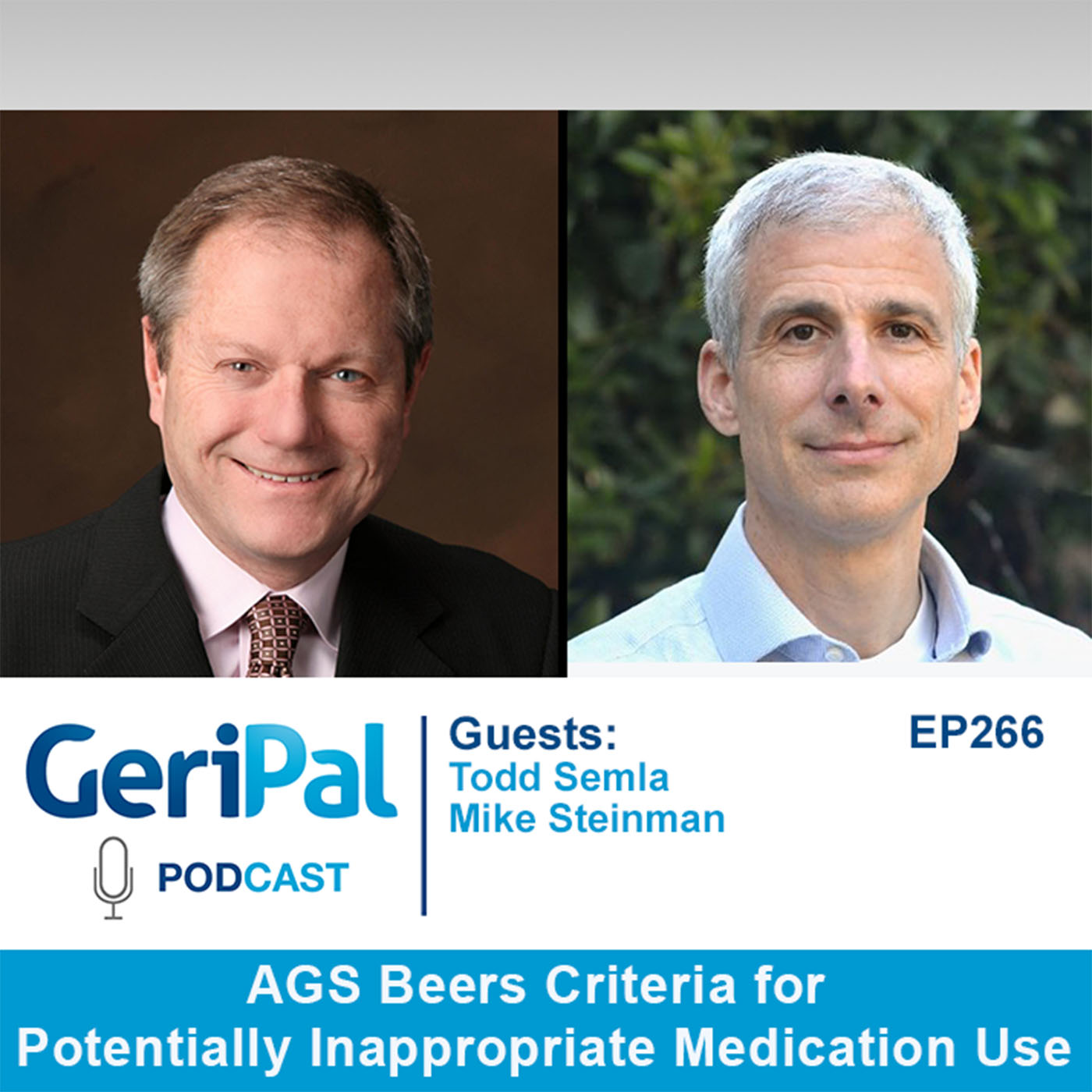
AGS Beers Criteria for Potentially Inappropriate Medication Use: A Podcast with Todd Semla and Mike Steinman
Hot off the press is a brand spanking new updated 2023 AGS Beers Criteria for Potentially Inappropriate Medication Use in Older Adults. The Beers Criteria is one of the most frequently cited refere…

Why is working with adolescents and young adults so hard? Abby Rosenberg, Nick Purol, Daniel Eison, & Andrea Thach
I haven’t worked with many adolescents and young adults (AYA, roughly teens to twenties). But when I have, I find that they’re often some of the hardest patients to care for. Why? We talk about wh…

GeriPal Special: Hopes and Worries for Hospice and Palliative Care
We have a special extra podcast this week. During the last AAHPM - HPNA meeting in Montréal, we went around asking attendees what one thing that they are most worried about and one thing they are mo…
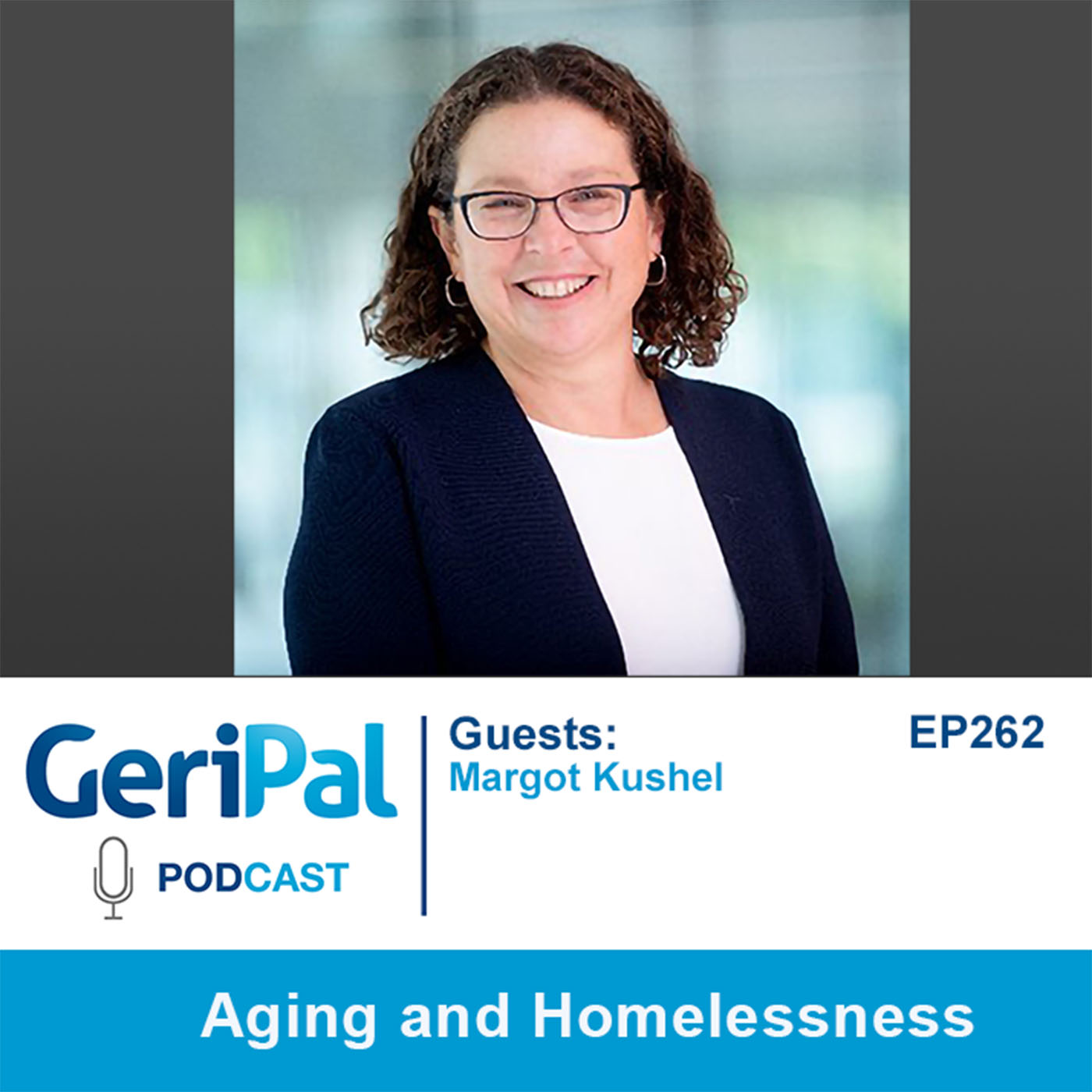
Aging and Homelessness: Margot Kushel
In 1990 11% of homeless persons were older than 50. Today half are over age 50. Today we talk with Margot Kushel about how we got here, including:
-
That sense of powerlessness as a clinician when …

The importance of social connection: Julianne Holt-Lunstad, Thomas Cudjoe, & Carla Perissinotto
Social connections impact our health in profound ways, whether it is the support we receive from family and friends in navigating serious illness, the joy from shared social activities, or connecting…

RCT of Chaplaincy: Lexy Torke, Karen Steinhauser, LaVera Crawley
Do we need an RCT to establish the worth of chaplaincy?
Einstein once said, “Everything that can be counted does not necessarily count; everything that counts cannot necessarily be counted.”
A friend…

Storytelling in Medicine: A Podcast with Liz Salmi, Anne Kelly, and Preeti Malani
Two weeks ago on the GeriPal podcast we talked about why and how to write for the general public. This week we’ve invited three guests to share their stories about storytelling that’s written for h…
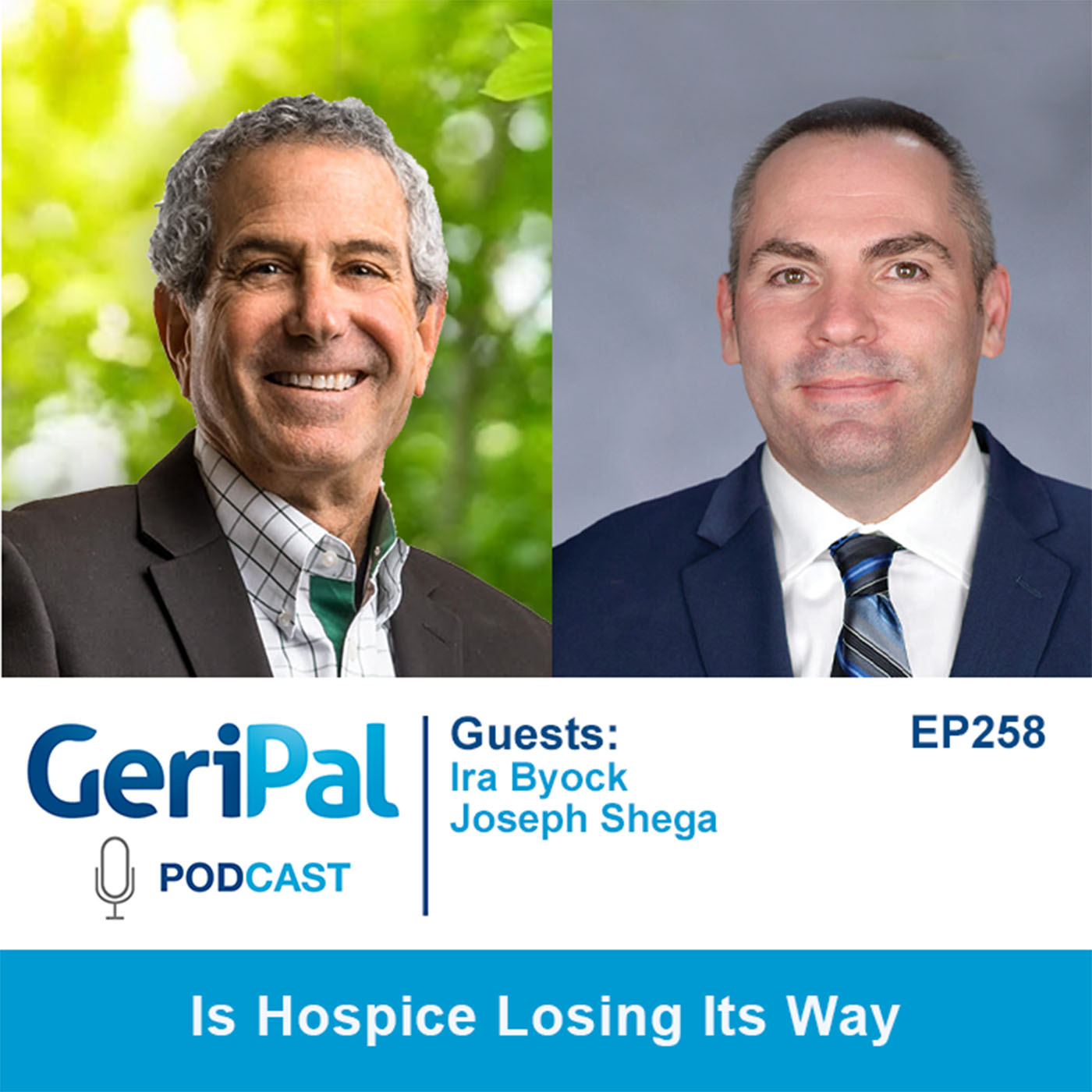
Is Hospice Losing Its Way: A Podcast with Ira Byock and Joseph Shega
In November of 2022, Ava Kofman published a piece in the New Yorker titled “How Hospice Became a For-Profit Hustle.” Some viewed this piece as an affront to the amazing work hospice does for those …

Writing for the Lay Public: Rosanne Leipzig and Louise Aronson
So you want to write a book.
So you want to write a book!
So…you want to write a book?!?
Today we talk with two geriatricians: Rosanne Leipzig, author of Honest Aging: An Insider's Guide to the Seco…
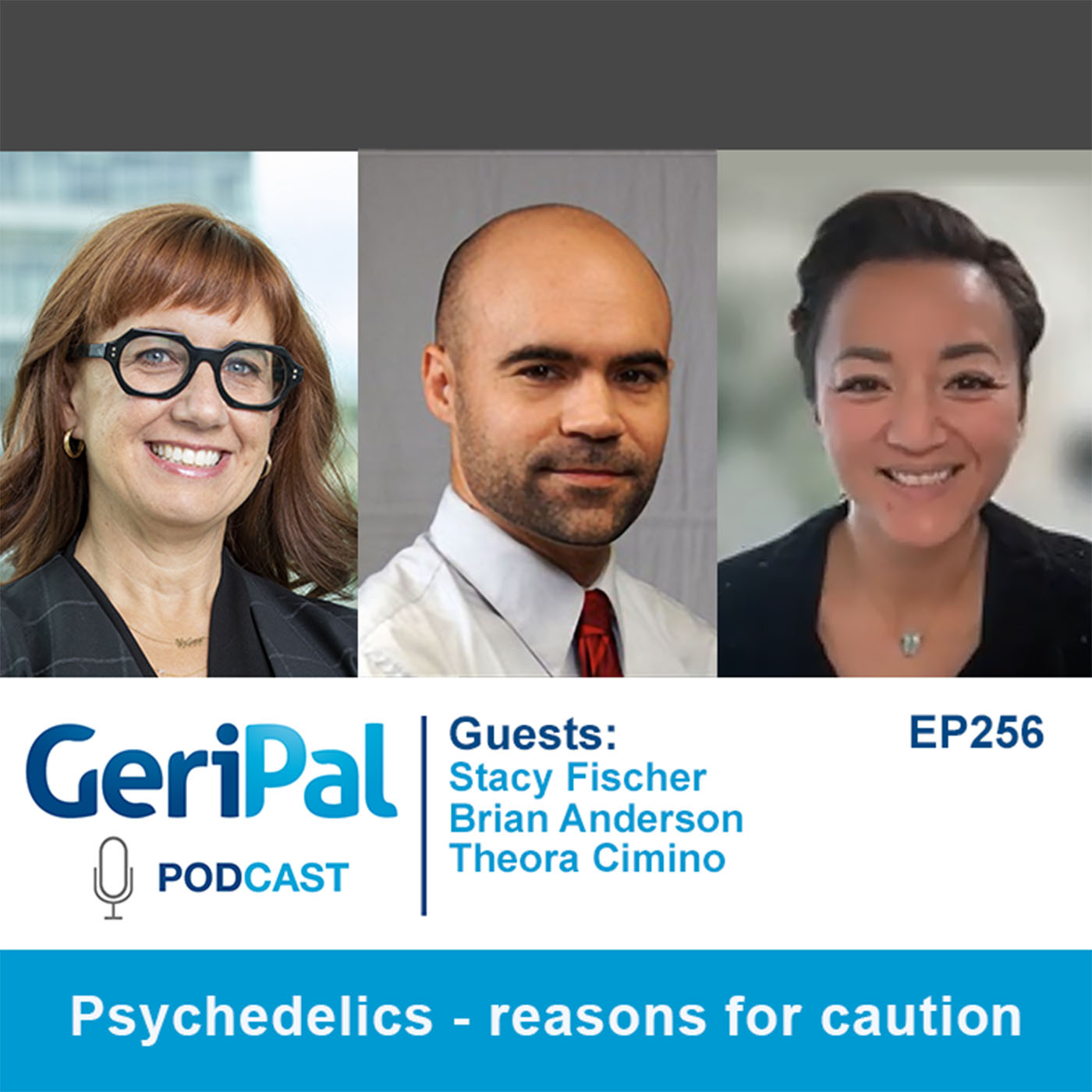
Psychedelics - reasons for caution: Stacy Fischer, Brian Anderson, Theora Cimino
Psychedelics are having a moment. Enthusiasm is brimming. Legalization is moving forward in several states, following the lead of Oregon and Colorado. FDA is considering approval, shifting away fr…
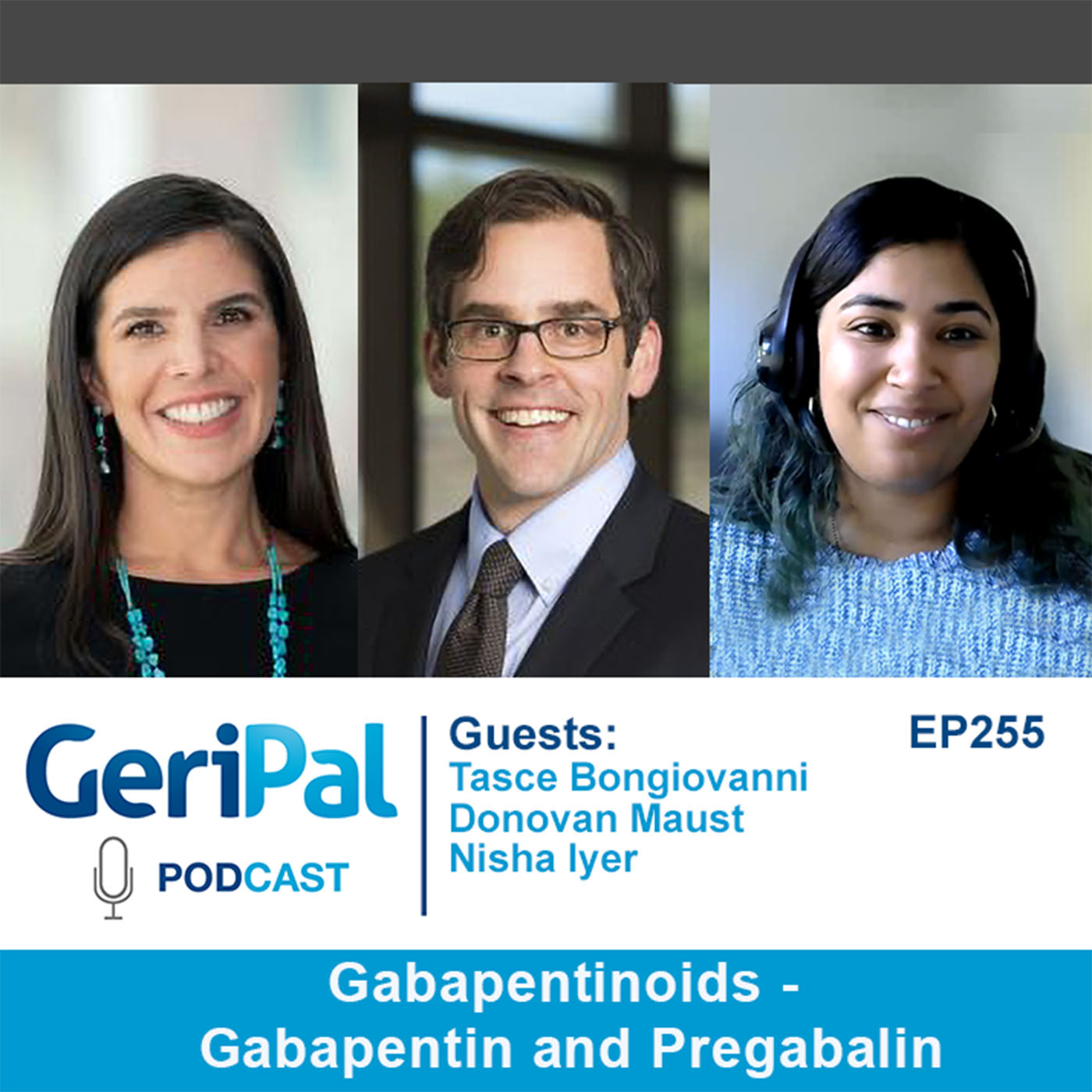
Gabapentinoids - Gabapentin and Pregabalin: Tasce Bongiovanni, Donovan Maust and Nisha Iyer
Gabapentin is the 10th most prescribed drug in the United States and use is increasing. In 2002, 1% of adults were taking gabapentinoids (gabapentin and or pregabalin). By 2015 that number increase…
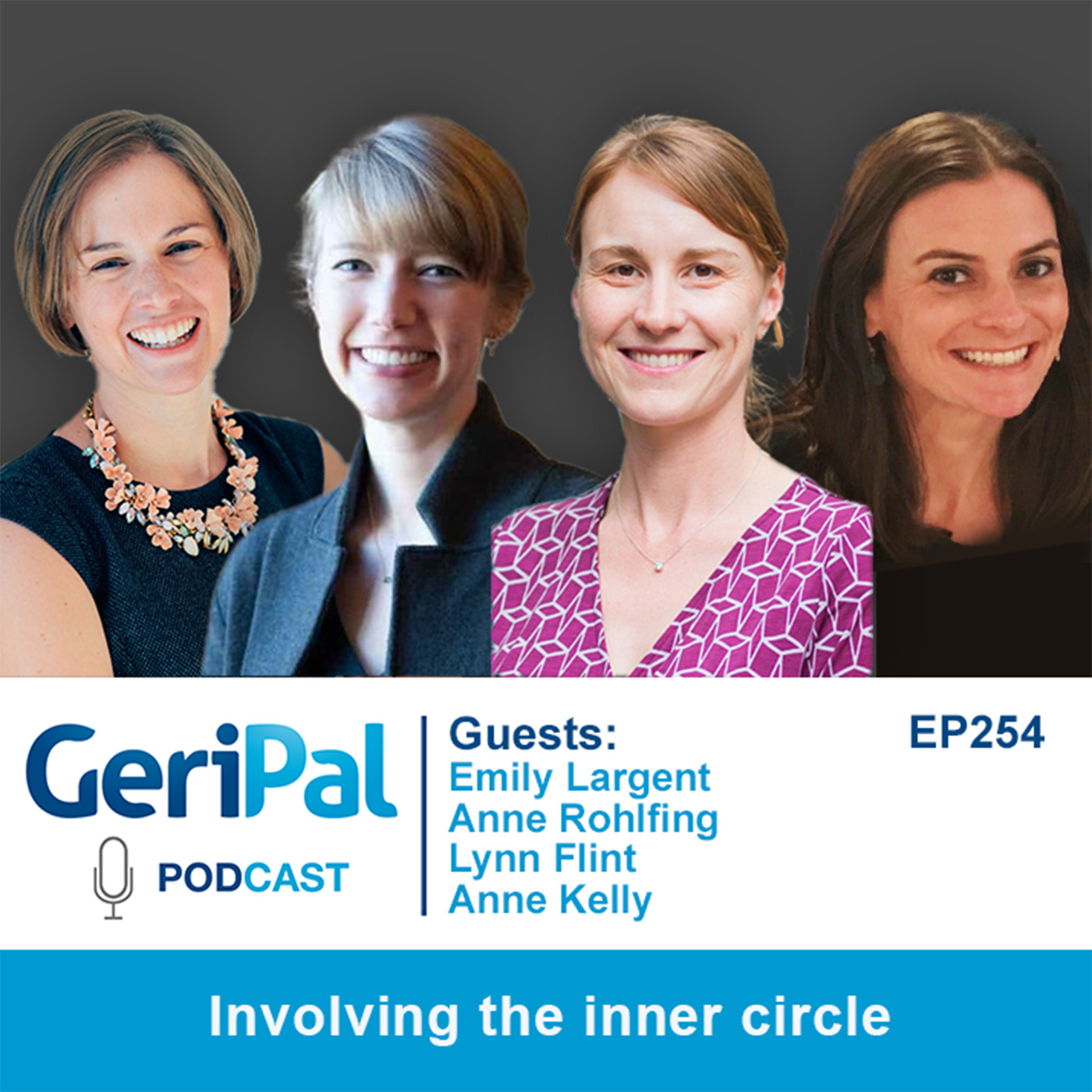
Involving the inner circle: Emily Largent, Anne Rohlfing, Lynn Flint & Anne Kelly
You know when you walk out of a patient's room and have that sense, “This isn’t going to go well.” The patient is sick and getting sicker, and refuses to let you talk with family or other members of …
